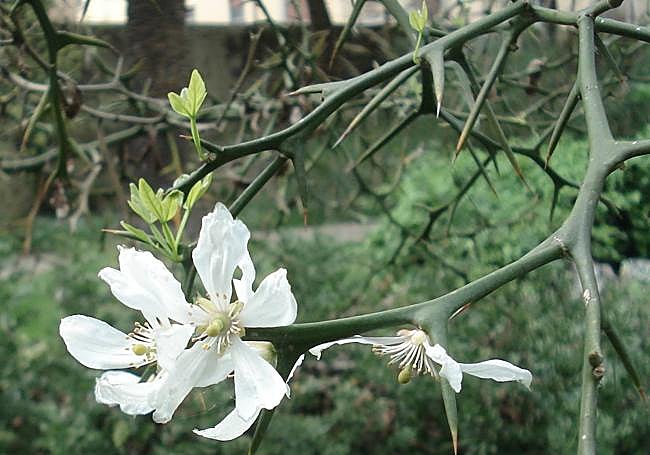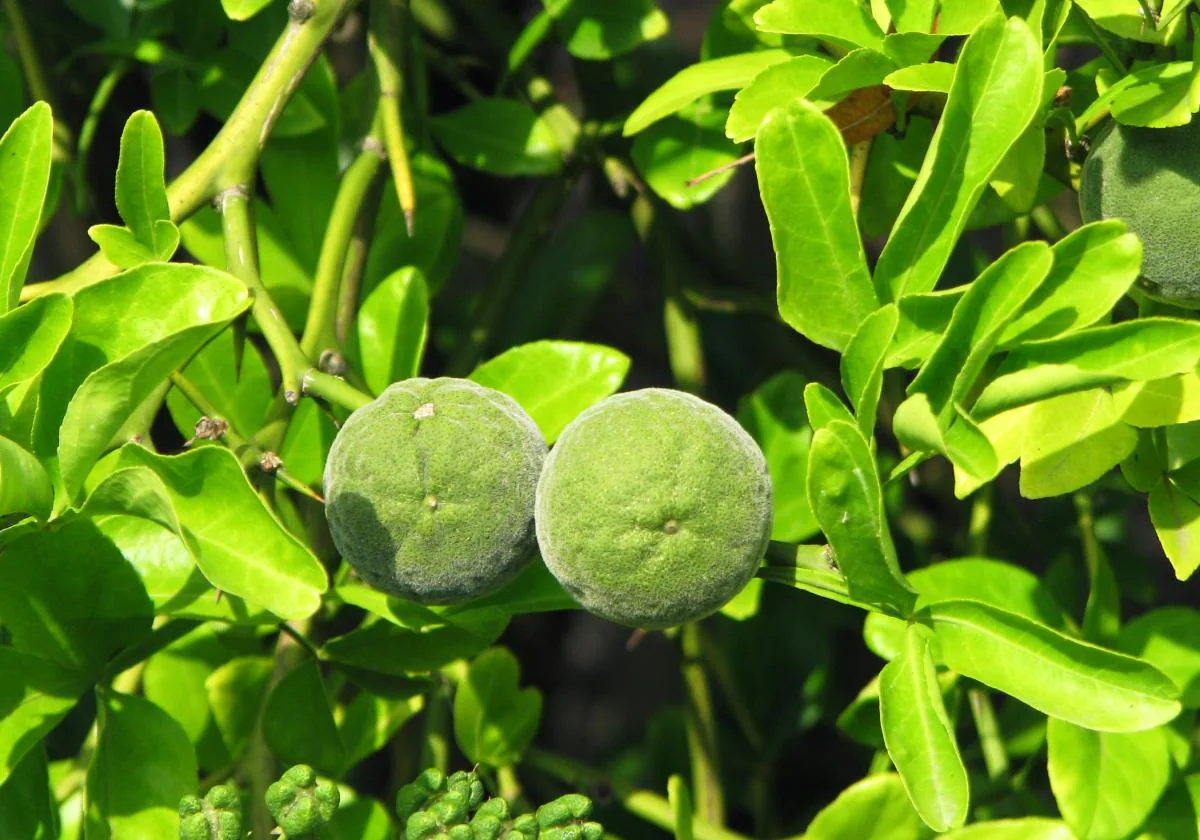Recommended for your garden in the south of Spain: Citrus trifoliata
Native to East Asia, the trifoliate orange is an unusual member of the Rutaceae or citrus family with fuzzy fruits and large vicious thorns
Cold and drought hardy (once established), Citrus trifoliata is a perfect small tree for hot dry regions and for those of us that live inland from the coast and sometimes get frosts in winter.
Native to East Asia, the trifoliate orange is an unusual member of the Rutaceae or citrus family. It is a deciduous tree around four metres tall (can reach eight metres in ideal locations), with large, vicious thorns, leaves split into three and fuzzy green fruits which ripen to a bright yellow. The perfumed flowers are larger than a true citrus and flatten out as they open, measuring up to 5cm across.
The leaves are made up of three leaflets, the middle one being longer than the two side leaves. They are very aromatic when crushed. In the autumn they turn yellow and then drop, exposing the bright green, twisted and thorny stems making an attractive addition to winter flower displays.

Zoom

The fruit is about the size of an average lime, smaller than oranges and lemons. It has a thick peel and lots of seed in the small fleshy area inside. It is very bitter and not considered edible although the peel can be used in marmalade or dried and powdered to use as a flavouring in cakes and desserts.
Common names include Japanese or Chinese bitter orange and although classed in the citrus genus it is also given its own genus, Poncirus, in some publications. In nature it does not hybridise with true citrus as the flowering period is different but it has been artificially hybridised to produce the citrange and the citrumelo. There are also dwarf varieties such as C. trifoliata Flying Dragon, often used to create impenetrable hedges.
Citrus trifoliata is also quite resistant to disease and this, coupled with its hardiness, has led it to being used as a rootstock for other, more tender, species.
For plentiful fruit it needs a site in full sun and with free-draining soil. Once established, Citrus trifoliata will only need watering occasionally in very hot summers.

